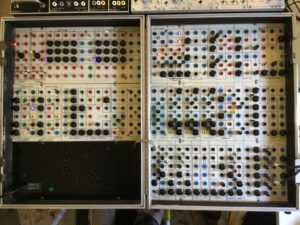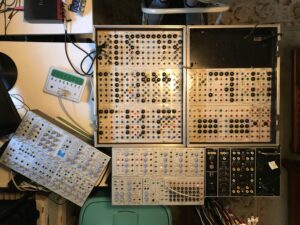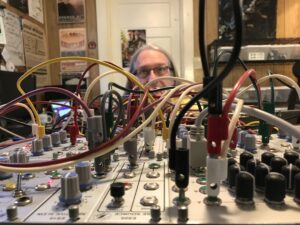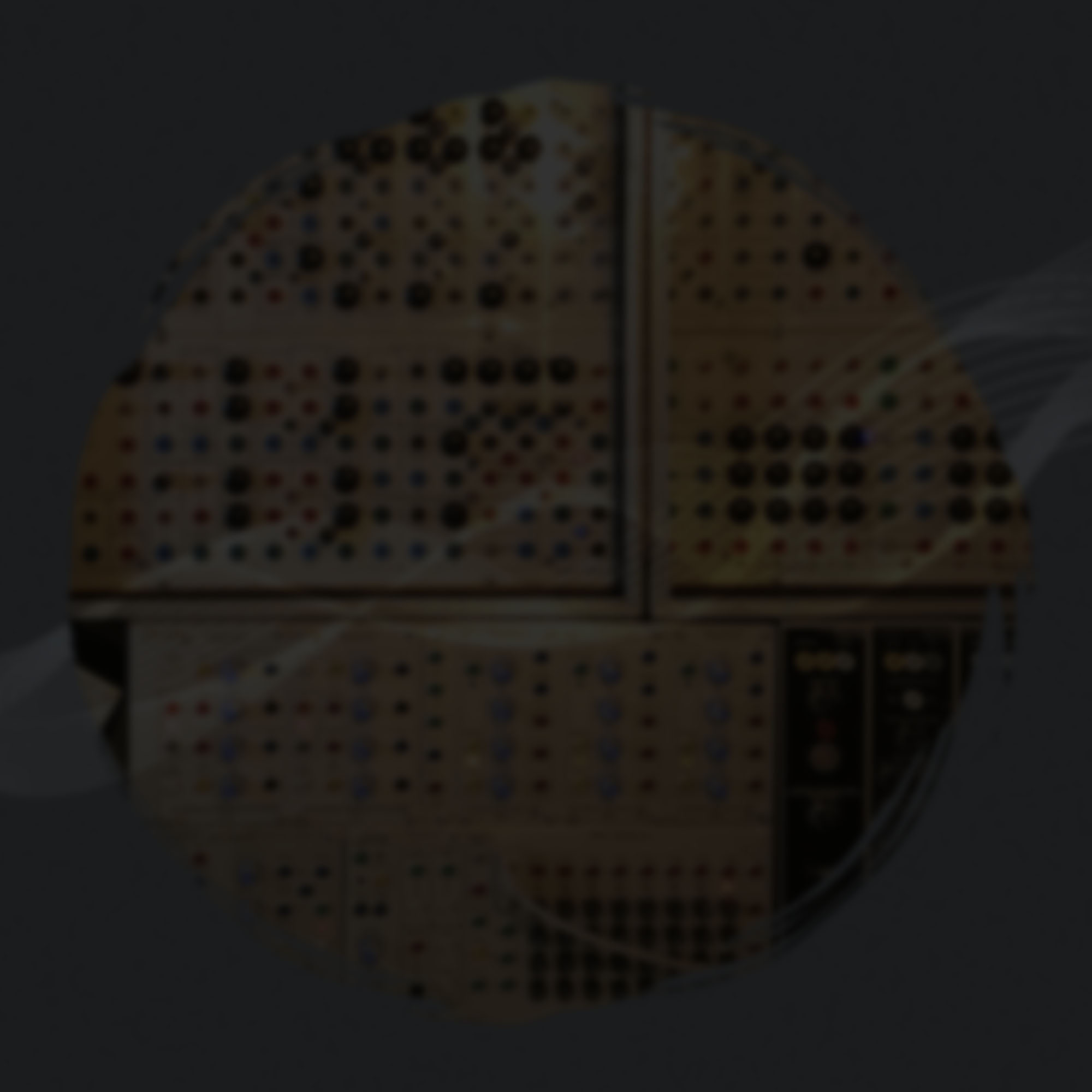Doug Lynner is a lifelong musician whose career started as a keyboardist and guitarist in psychedelic rock bands in the 60s. In parallel he got a college degree in electronic music composition from the California Institute of the Arts where he studied with Morton Subotnick, Harold Budd, James Tenney, Leonid Hambro and Nicholis England.
He does perform internationally, host a weekly FM radio show (Bloop and Quack), teaches electronic music and music composition privately, and, host free modular synthesizer tutorial videos.
How were you first acquainted to Modular Synthesis?
I learned of modular synthesizers in the 1960s through academic recordings, rock music, movies and the Whole Earth Catalog.
When did that happen? When did you buy your first system?
The first commercial synthesizer that I used was an EMS VCS3 (Putney) in 1971. In 1973 I began to use the Buchla 200. In 1975 I purchased my first modular synthesizer, the Serge Modular Music System now known as the Mystery Serge. It is the first commercial Serge system.

What was the effect of that discovery on your compositional process?
On your existence?
The design concepts employed in the Serge helped me to dissect the elements of sound and understand how they work together in a dynamic music world. It continued my liberation from the traditional Western music traditions.
Quite often modularists are in need for more, their hunger for new modules is never satisfied? How do you explain that?
These days that hunger is fueled by the insane number of modules available in the market. It can take a long time to explore the options and arrive at a system that supports your musical needs.
Unfortunately, most people have to make those decisions before they have matured musically and developed a compositional point of view with which to inform their module choices.
Even for mature musicians, new modules can spark new ideas just as any change of instrument influences a composers output. If you keep your compositional point of view in mind the process can be less chaotic.
Would you please describe the system you used to create the music for us?
What would be the system you are dreaming of?
I performed this special concert live in my studio in one pass on the morning of September 4, 2019 after patching the instruments the previous day.
I performed it on the Mystery Serge (an original paperface Serge), a modern Eurorack Serge realization by Elby Designs, and, a Cyndutries Zeroscillator.
I don’t dream of systems. I work with what I have. Music is my goal, not an instrument. I would be singing and knocking rocks together if that was all that I had to work with.

Are you feeling close to some other contemporary Modularists?
Which ones?
My favorite Modular player at this time is Shiro Fujioka. We are planning a recording session together this fall for an upcoming release.
Which pioneers in Modularism influenced you and why?
I was very influenced by the early work at Columbia Princeton and at Bell labs when I was a teenager. Later I was very influenced by my teachers, especially by Mort, Hal, and, Leonid at CalArts. Also of great eventual influence was Serge Tcherepnin who connected my hands to my ears.
Any advice you could share for those willing to start or develop their “Modulisme”?
Work to break through the technology ceiling so that you can concentrate on music composition. The synthesizer is not the end in itself. It is just the means to the greater end of music composition.
Work on your art every day even if it is nothing more than to listen to what you did yesterday. Keep the pump primed.
Explore the world of sound with intention and curiosity.
Don’t waste your creative currency by competing with, or talking badly about, fellow musicians and musical styles. Your success doesn’t depend on someone else’s failure.
Listen.
Create community and include everybody.
https://www.bayimproviser.com/artist/370/doug-lynner

